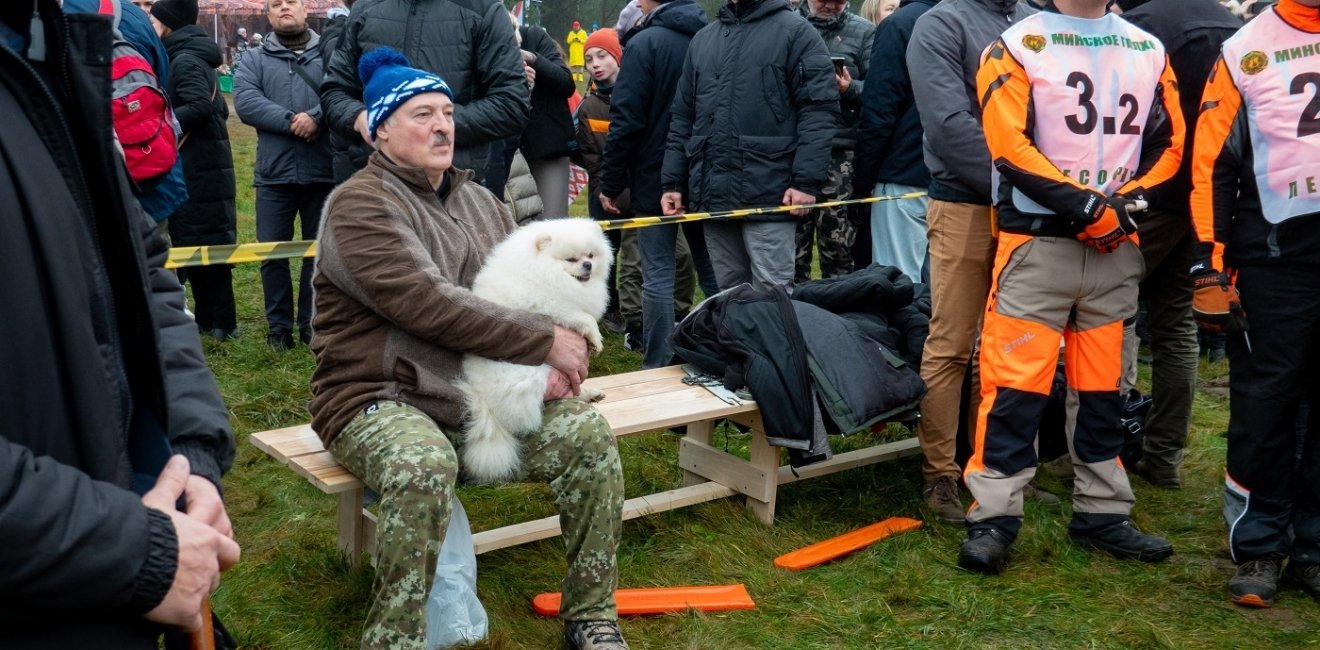
A blog of the Kennan Institute
On January 26, 2025, the presidential election in Belarus ended with the victory of the incumbent, Alexander Lukashenko, marking the start of his seventh term as president. Despite the identical result, this electoral campaign was unique for Belarus. For the first time, it was held against the backdrop of a major regional war, increasing isolation for Belarus, and an unprecedented deepening of ties with Russia.
The next five years may bring significant changes not only for Belarus, but for the entire region. Any new security architecture for the region will largely depend on the situation in Belarus.
Presidential Elections as a Political Weapon
The timing of the 2025 presidential elections in Belarus was unusual in that it shortened Lukashenko’s presidential term by six months. Shortening the term certainly did not prevent the Belarusian leader from running for a new term, nor did it require organizing extraordinary elections. Instead, the chess game played around Lukashenko’s rushed election day was meant to help Minsk widen its room for maneuver on the international stage.
As part of its chessboard moves, Minsk began sending signals to Western countries ahead of its election day. For instance, since July 2024, several waves of amnesty have been granted to political prisoners in Belarus, resulting in the release of 293 individuals. As part of the government’s initiative, the recently converted pro-government blogger Roman Protasevich (a former dissident whom Belarusian agents pulled off a Ryanair flight in 2021 after a fake bomb threat forced it to land in Minsk) published photos of influential Belarusian opposition leaders Maria Kolesnikova and Viktor Babariko, showing that they were in relatively good health. Prior to these photos, their health status had been unknown for over a year and a half.
During the most recent round of amnesties, Lukashenko also released American citizen Anastasia Nuhfer, a move confirmed by US Secretary of State Marco Rubio. Considering the October visit of two US State Department representatives to Minsk for talks with Lukashenko and the fact the presidential election in Belarus occurred around the same time as Donald Trump's inauguration, this gesture toward Washington potentially was aimed at showing Minsk’s readiness for political bargaining with the US. The new Trump administration has not condemned the elections in Belarus, and Antony Blinken’s statement criticizing Lukashenko's plans to become president for the seventh time has disappeared from the US State Department’s website.
Looking into the Future
The softening stance of the new administration in Washington is particularly important for Lukashenko if he is to play any role during negotiations to settle the Russo-Ukrainian war. Minsk’s suppression of political protests in 2020, its creation of a migration crisis at its borders with EU countries, and its later involvement as a launch-pad for Russia's full-scale invasion of Ukraine have all undermined Minsk's reputation as a reliable international partner for regional security. Nonetheless, Belarusian officials seem undeterred in their attempts to restore, if not create Belarus’s potential as a mediator for conflict resolution.
This concerns not only Lukashenko's statements about his intention to participate in Ukraine peace talks, but also efforts to enhance Belarus’s diplomatic standing and range of activities. For instance, from October 31 to November 1, Minsk hosted the 2nd International Conference on Eurasian Security which was attended by 600 participants from 45 states, including Hungary’s Foreign Minister Peter Szijjártó. The event was intended not only to display Belarus’s potential as a peacemaker but also signal its readiness to participate in broader diplomatic efforts.
Belarusian authorities can point to at least one significant diplomatic success, as its representatives are involved in negotiations over prisoner-of-war exchanges between Russia and Ukraine. Belarus currently acts as a channel for exchanging notes, transmitting legal and consular documents, and conveying more informal military and political messages between Russia and Ukraine.
Fragile Balance
Although Minsk has strengthened its control over the internal situation in Belarus, as evidenced by the smooth conduct of the electoral campaign, this still does not mean complete stabilization within the country.
Stability in Belarus, in terms of the regime and the country on the whole, depends on external factors that Lukashenko simply cannot control. The most serious of these is the Russo-Ukrainian war and its consequences. If internal problems, primarily economic, should escalate in Russia, they will inevitably affect Belarus to its detriment. Importantly, Belarus no longer has the option of thawing relations with the West as it once did.
Moreover, Western countries have yet to show serious interest in restoring contacts with Minsk, despite the release of nearly 300 political prisoners and various attempts to invite Western officials to dialogue. Lukashenko's bet on the new US presidential administration may also fail, as it remains unclear how he could be of use to the new American president.
If there is no significant weakening on Moscow’s part, Lukashenko will face another risk: Russia's drive to accelerate the integration processes with Belarus within the framework of a Union State. Such an outcome would spell the end of Belarus as an independent state—and of Lukashenko as its president.
The Power Transit Dilemma
After 30 years of Lukashenko in power, the issue of succession is now on the agenda, and the political system in Belarus is gradually preparing for it. During his previous term, Lukashenko established a constitutional framework for the future transition of power, outlining certain guarantees and the status of a former head of state under the law. In case his health or other circumstances force him to transfer the presidency, Lukashenko took on another leadership role in a new state body in 2024: The All-Belarusian People's Assembly, a congress of the nomenklatura (governing elites) from various levels that are not involved in the day-to-day governance of the country.
Despite these preparations, it remains unclear whether this planning will actually lead to the election of a successor and a voluntary transfer of power. Lukashenko needs to be sure that his plans will not be affected by regional instability or the consequences of changes in the framework of relations with Russia and the West at such a vulnerable moment for the regime. Without certainty for Belarus and for Lukashenko on how the war will end and whether Belarus will retain its sovereignty, it is highly unlikely that there will be any voluntary transfer of power. The traumatic experience of the 2020 protests remains fresh in Lukashenko’s mind, further narrowing the possible avenues that might lead to a transition. Finally, Lukashenko cannot count on thawing relations with the West given Belarussian support for Russia’s war on Ukraine, reluctant as it may have been.
Thus, Lukashenko has put himself in a situation where any scenario that may arise risks opening Pandora's box regarding the fate of both his regime and Belarus itself. Ukraine and Western states must prepare for the possible sudden emergence of a power vacuum in Belarus and additional Russian efforts to control Minsk and ultimately dissolve Belarus' sovereignty. Otherwise, the balance of power in the region will irreversibly shift in favor of Moscow.
The opinions expressed in this article are those solely of the author and do not reflect the views of the Kennan Institute.
Author


Kennan Institute
The Kennan Institute is the premier US center for advanced research on Eurasia and the oldest and largest regional program at the Woodrow Wilson International Center for Scholars. The Kennan Institute is committed to improving American understanding of Russia, Ukraine, Central Asia, the South Caucasus, and the surrounding region through research and exchange. Read more

Explore More in Focus Ukraine
Browse Focus Ukraine
Talking to the Dead to Heal the Living

Ukrainian Issue in Polish Elections


